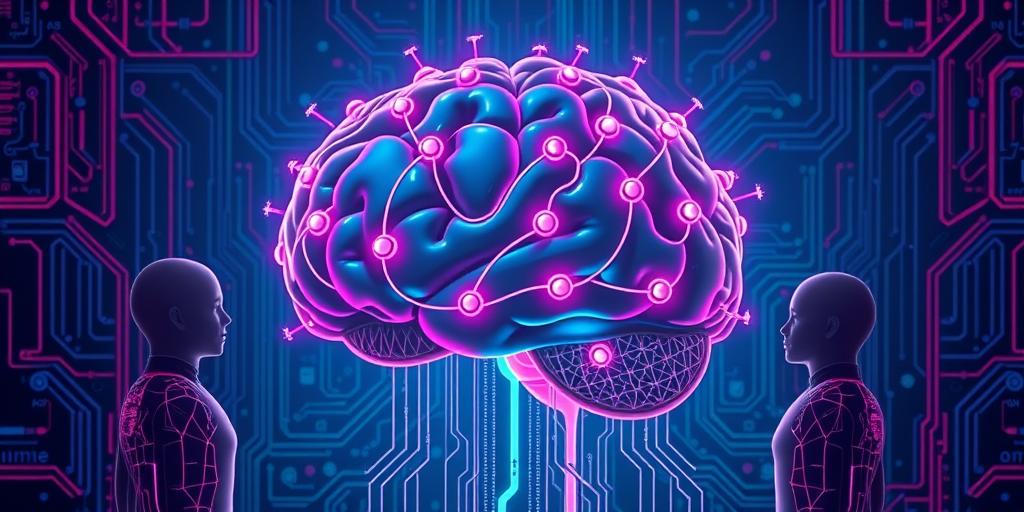Have you ever paused to consider the ethical implications of the AI revolution transforming our digital world? The rapid advancements in artificial intelligence are reshaping how we live, work, and interact, but are we adequately addressing the ethical dilemmas this technological leap presents? This article delves into the crucial questions surrounding AI ethics in the context of digital transformation, exploring the challenges, opportunities, and potential pitfalls we face as we navigate this brave new world. Let’s unpack the complex and fascinating ethical considerations of AI in our increasingly digital lives.
Understanding AI Ethics in the Digital Age
The term “AI ethics” might sound like something from a sci-fi movie, but it’s a very real and rapidly evolving field. It’s concerned with the moral principles and values that guide the development, deployment, and use of artificial intelligence systems. As AI becomes more sophisticated and integrated into various aspects of our lives, addressing the ethical implications becomes paramount. From self-driving cars to facial recognition software, AI is making decisions that have real-world consequences, affecting human lives and societies in various profound ways. This necessitates the development of ethical frameworks to mitigate risks and ensure responsible AI development.
Key Ethical Considerations in AI Development
Several core ethical considerations must be addressed when developing and implementing AI systems. These include:
- Bias and Fairness: AI systems are trained on data, and if that data reflects existing societal biases, the AI will likely perpetuate and even amplify those biases, leading to unfair or discriminatory outcomes. Addressing this requires careful data curation and algorithmic transparency.
- Privacy and Surveillance: AI-powered surveillance technologies raise significant privacy concerns. The potential for mass surveillance and data misuse needs careful consideration and appropriate safeguards.
- Accountability and Transparency: When an AI system makes a mistake or causes harm, it’s crucial to understand who is responsible. Establishing clear lines of accountability and ensuring transparency in the decision-making processes of AI systems are essential.
- Job displacement: The automation potential of AI is a double-edged sword. While it promises increased efficiency, it also raises concerns about widespread job displacement, necessitating proactive measures for retraining and workforce adaptation.
The Role of Regulation in Shaping AI Ethics
Given the significant implications of AI, the development of clear regulatory frameworks is vital. These regulations should address issues of data privacy, algorithmic transparency, and accountability. International cooperation is essential to ensure that the ethical development and use of AI are not hampered by differing national standards. It’s also important to foster public discourse and engagement to ensure regulations reflect the values and concerns of society.
Navigating the Complex Regulatory Landscape
The regulatory landscape surrounding AI is complex and rapidly evolving. A key challenge is to balance the need for innovation with the need to mitigate risks. Overly restrictive regulations could stifle progress, while insufficient regulations could lead to harm. Striking the right balance is crucial. International bodies and collaborations are key to developing effective and consistent AI ethics standards.
Practical Steps for Ethical AI Development
Organizations developing and deploying AI systems have a responsibility to prioritize ethical considerations. This involves building ethical AI into the design process, ensuring data diversity, and implementing rigorous testing and monitoring protocols. Furthermore, organizations should be transparent about how their AI systems work and their potential limitations. Investing in AI ethics education and training for employees and the wider public is a crucial step. Companies must also proactively address potential negative consequences, such as job displacement, and implement solutions to mitigate such problems.
Implementing Ethical AI Principles
Incorporating ethical AI principles means moving beyond mere compliance with regulations and proactively building ethical considerations into every stage of the AI lifecycle. This includes:
- Establishing ethical guidelines and principles for AI development and deployment.
- Creating diverse and inclusive teams responsible for AI development and implementation.
- Engaging in ongoing evaluation and improvement of AI systems.
- Collaborating with stakeholders to ensure AI development aligns with societal values.
The Future of AI Ethics
As AI technology continues to advance at a breakneck pace, the challenges of ensuring ethical AI will only intensify. Ongoing research, public discourse, and robust regulation are crucial. We must continuously assess the impact of AI on society and adapt our ethical frameworks accordingly. The future of AI ethics hinges on collective effort—collaboration between researchers, policymakers, industry leaders, and the public—to ensure that AI is developed and used for the benefit of all humanity. The long-term consequences of our decisions today will shape the future of this transformative technology. Embrace the responsibility, and let’s shape the ethical AI landscape together.
This journey into the ethical landscape of AI requires ongoing dialogue and a commitment to responsible innovation. Let’s work together to navigate this transformative technology ethically, ensuring a future where AI benefits all of humanity. Take charge, learn more, and make your voice heard in shaping the future of AI.




